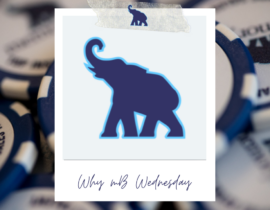4 Things You Must Do in Every Job Interview
Your resume caught all the right attention and now you’ve unwrapped a golden ticket to an interview. The hardest part is over—or is it? The weight of that upcoming interrogation is sitting heavy on your shoulders and you’re not quite sure what to do next. Sure, you’ll dress professionally and spout off your knowledge about the company. You’ll even bring an extra copy of your resume. But so will all the other candidates. How will you rise above the rest? Follow these four key tips and you’ll be shaking on an official offer before you know it.
1. Be prepared
Arrive at the interview prepared with anecdotes that show off your skills and illustrate why you are qualified for this position at this company. If an interviewer pointed to a line on your resume and said, “Tell me more about this experience,” what would you say? Restating what you wrote on your resume is not what that interviewer is looking for. Verbal examples of success (especially with statistics to back it up) and hard work make your resume come to life. After all, the breathing alter ego of your paper self should be even more interesting than those well-worded bullet points. The interview is your chance to elaborate on specific stories of your past experiences that will make you stand out from other candidates.
The best way to set yourself apart when discussing your resume is to become a good storyteller – and a good salesperson. Practice by asking a friend or relative to hold a mock-interview with you. Demonstrate your problem-solving skills by outlining a challenge you faced, your unique solution, and the stellar results. The metrics are important. Did you exceed a goal? By how much? Did you bring in new clients? How many? Present examples of how you turned a negative into a positive for your team – or your previous employer’s bottom line. Within these vignettes, intertwine your knowledge of the field and any relevant news items. It’s the one-two punch of job interviews.
2. Ask great questions
The key word here is “great.” Prior to the interview, brainstorm some well-thought-out questions that illustrate your desire for the position and your understanding of the sector. Write them down so your mind doesn’t go blank while you’re deep in the throes of your interview.
When your interviewer replies, thoroughly listen to their response and ask additional questions to follow up. Make this a two-way conversation instead of an interrogation. Never resort to basic inquiries to which the answers can be found on the website. And never walk out of an interview without asking at least two questions. Here are just a few examples of great questions and some related secondary questions:
- What are some characteristics that your ideal candidate would have in this role? How would you describe the personality of the department or the work environment?
- What did the person who last held this role do effectively and ineffectively? How will my performance be evaluated?
- What role does this position play in reaching the department or company’s goals? What are the company’s goals in one, three, and five years?
3. Keep your composure
It’s a tough job market out there. Employers may do a bit more testing to see if you really are their candidate. This can take many forms nowadays including testing you a bit to see how you might react to various types of questions or styles of interviewing. Don’t become flustered if an interviewer pauses to create silence before answering a question, decides not to smile at you, or asks you something totally offbeat. Take a deep breath, ask a follow-up question to slow the situation down, but by all means, stay composed. Come up with creative answers (because sometimes there isn’t a “right” answer) and stay confident.
4. Follow up
Once you ace the interview, you have to close the sale. Start by thanking the interviewer for his or her time and then reiterate your interest in the position. Don’t be afraid to point out why you think you would be a great fit for the position and the company. End it with a firm handshake and a smile. But don’t stop there. You’ll need to start writing that thank you note the first chance you get. If you don’t have the names of the people who have interviewed you, now is the time to ask for a business card or email address. Then get to it.
If some of these tips seem a little over the top, remember, it’s by design. This is the time to get all the details right. You have to go above and beyond if you want to take the top spot—because only one person will land that elusive offer, but many will try. Do yourself a favor and cover all of your bases before, during, and after the interview for the best shot at success. You deserve it and so does your future employer.
For more tips on finding the right position for you, check out more in our blog.
Since cofounding memoryBlue in 2002, Chris has helped provide inside sales resources to more than 1,000 high tech companies, and has hired, placed, or evaluated thousands of high tech sales professionals. Chris spearheads memoryBlue recruiting services, and is passionate about developing sales talent that generates results.




